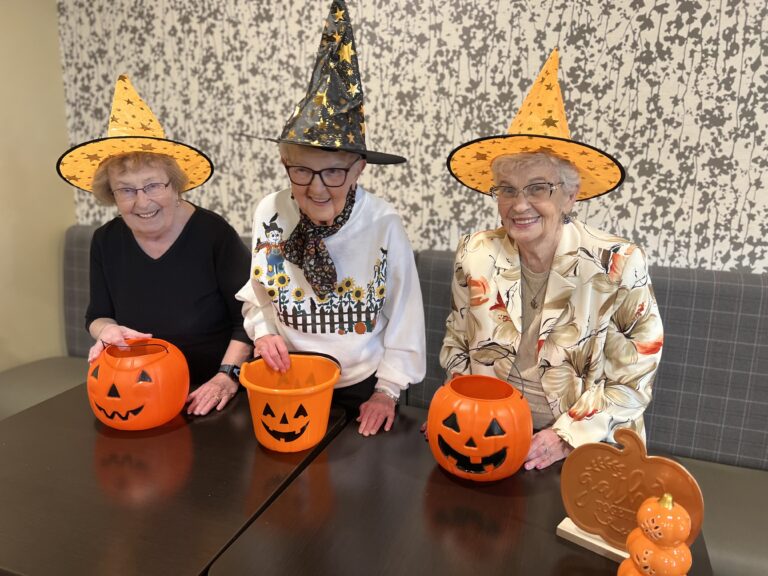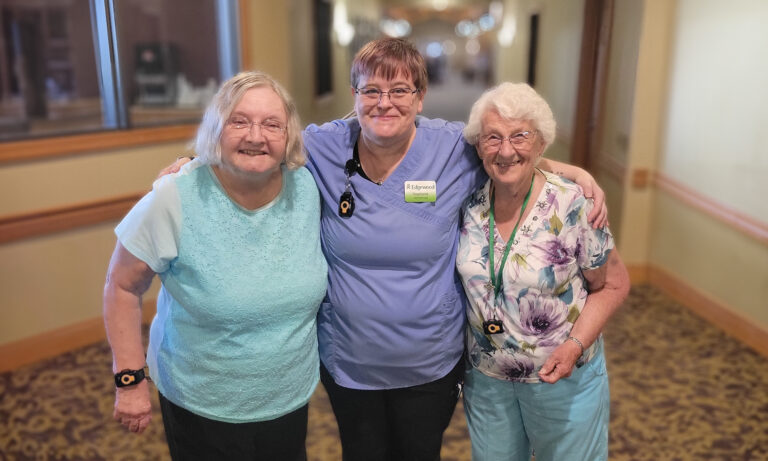
Nutrition plays a big part in leading a healthy, enjoyable, and active life – which is no different for seniors. Watching what you eat and drink is a big responsibility, and there’s no better time to acknowledge this than during March, National Nutrition Month. The awareness effort, led by the Academy of Nutrition and Dietetics, implores Americans to learn more about their food and how to craft a nutritious diet. Seniors need to note that their dietary needs change as they age. For instance, altered metabolism may contribute to seniors losing or maintaining a healthy weight.
Find Senior Living Near Me
Observing a healthy diet isn’t all about fads and superfoods. For seniors, it’s as simple as making everyday decisions that help promote well-being. Here’s some more information on what those steps look like:
Don’t Skip Meals
As the Huffington Post noted, it’s a common misconception that it’s OK to skip meals, even if some seniors experience a loss of appetite as they age. The reality is that foregoing a meal or sustenance of any kind for a period is never a good idea for a senior. Even if a big breakfast seems like too much fuss too early on, having a bowl of oatmeal or some fruit helps to start the day off right. The same goes for any time during the day when seniors usually eat. If, for any reason, you don’t feel hungry enough for a full meal, don’t go for too long without at least a light snack. Eating helps avoid fatigue and long-term lack of nutrition.
Drink More Water
You can always stand to drink more water. Dehydration concerns seniors, and there’s only one way to prevent it. However, some seniors face the same problem with water as they do with appetite, in that they don’t get as thirsty as often as when they were younger. There are a couple of ways to get around this: Replace beverages you usually drink with water – for example, a soda or tea often drank with dinner. If you can, always bring a water bottle with you. Having one on hand encourages you to drink more water and constantly reminds you when to fill up again.

Drink water whenever you can.
Try New Ways to Get Nutrition
Even a senior’s favorite food can become stale over the long haul. However, that’s no reason to stop eating it, especially if it’s nutritious, like fruit or vegetables. For instance, instead of cooking down greens with fat and using a lot of salt, try topping raw greens with a squeeze of fresh lemon or balsamic vinegar for a tasty twist on an old standby. When it comes to fruit, try creating smoothies. There are a ton of smoothie-makers on the market that are easy to use, and seniors can come up with their favorite combinations, like bananas and strawberries.
Talk to a Nutritionist
If you don’t know much about nutrition or just need help making better lifestyle choices regarding your diet, don’t be afraid to contact somebody in your community who has such expertise or an outside specialist who can provide assistance. Getting a professional opinion can help you determine what foods you need to cut out and what nutrients you need to get more of.
“Registered dietitian nutritionists can help all consumers determine the lifestyle balance that provides our bodies with the nutrients we need and still eat the foods we enjoy the most,” said Academy of Nutrition and Dietetics Spokesperson Cordialis Msora-Kasago.
Learn About Senior Nutrition
As previously mentioned, seniors’ dietary needs change as they age. A senior’s body needs different nutrients to sustain itself, and experiences change in digestive functions as it ages. Some senior nutrition topics to be aware of — from the Academy of Nutrition and Dietetics — include:
- Calcium and vitamin D: The Academy said seniors need more calcium and vitamin D than other demographics to maintain bone health. Options for getting these nutrients include fat-free milk, fortified cereals, and multivitamin supplements.
- Fiber: Fiber is hugely important for a healthy digestive system and for preventing complications like constipation. Peas and beans, whole-grain bread, and other fiber-fortified products are recommended for fiber.
- Good fats: You don’t need to avoid fats altogether; the key is knowing which fats are good for you and which aren’t. For instance, trans fats in junk and processed foods shouldn’t be consumed. Instead, opt for fish, vegetable oils, nuts, and seeds containing polyunsaturated and monounsaturated fats that are healthier for your heart.
Maintaining a healthy diet is much easier for seniors than some think. Just keep in mind that there are everyday decisions you can make to improve your nutrient intake and overall well-being.




